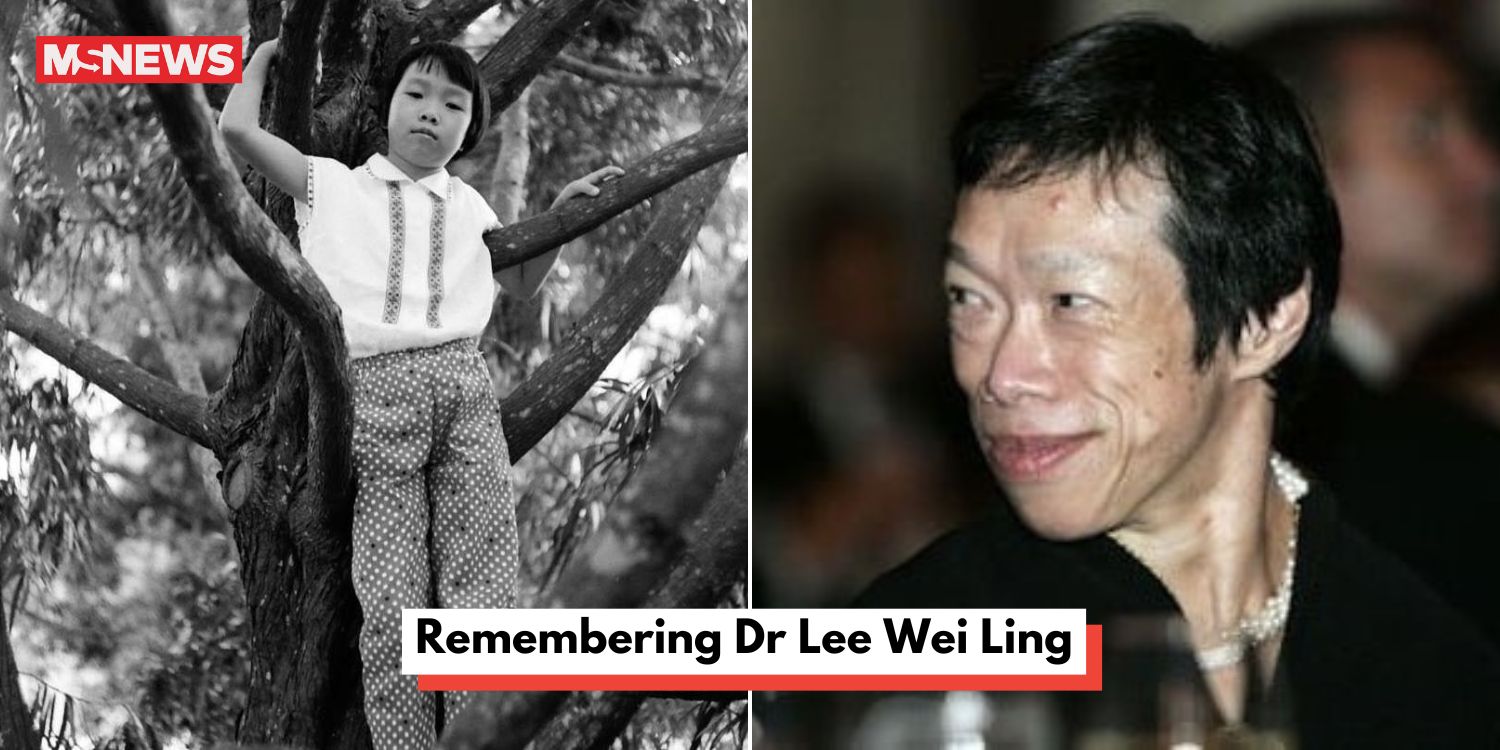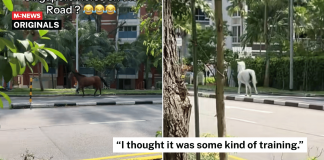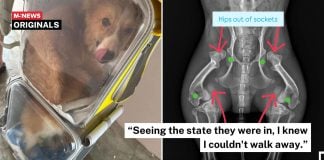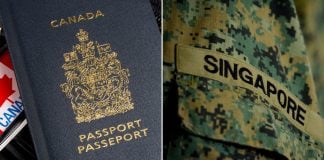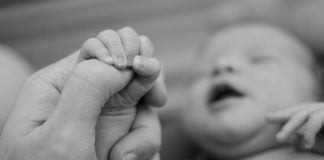5 facts about the late Dr Lee Wei Ling
On Wednesday (9 Oct), Dr Lee Wei Ling, daughter of the country’s founding Prime Minister (PM) Lee Kuan Yew, passed away at the age of 69.
She had been diagnosed with progressive supranuclear palsy in 2020, a rare brain disorder that causes severe problems to the body’s movement and behavioural changes.
Most knew of Dr Lee as the founding PM’s daughter and through the highly publicised Oxley Road feud with Senior Minister (SM) Lee Hsien Loong over their family home.
Beyond that though, she had a multitude of achievements in her personal life and career.
Here are five facts about the late Dr Lee, in remembrance of her life.
1. A gifted student from day one
As a driven and hardworking child, Dr Lee’s talents for academia shone early on.
When she enrolled in Nanyang Primary School, her knowledge of the subjects taught was already far ahead of her peers at the same level.
“[She] got thoroughly bored in class,” wrote SM Lee in his eulogy for his sister.
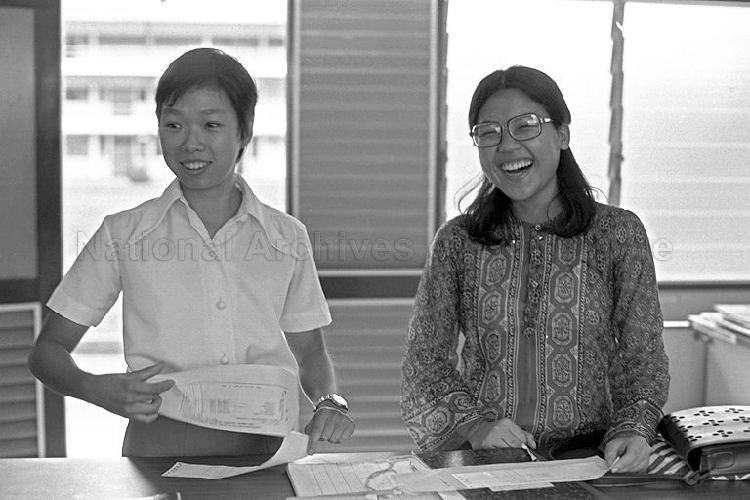
Source: National Archives of Singapore
Noting this, the school granted her a double promotion in Primary One, allowing her to skip Primary Two entirely.
She maintained this academic prowess throughout her educational journey at Nanyang Girls High and Raffles Institution.
At the national examinations, Dr Lee scored eight distinctions in GCE ‘O’-levels and nine distinctions in GCE ‘A’-levels.
These stellar results granted her the Presidential Scholarship in 1973, with which she went on to study at the University of Singapore, now the National University of Singapore (NUS).
2. Top medical graduate from NUS
At the University of Singapore, Dr Lee chose to further her education in the medical field.
She graduated with a Bachelor of Medicine and Bachelor of Surgery (MBBS) in 1978, and was the only graduate of her year to pass with honours.
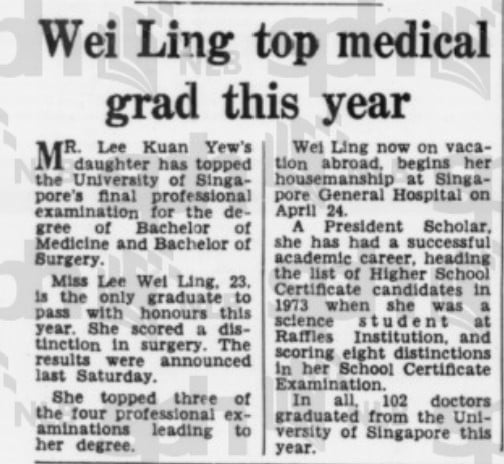
Source: NewspaperSG
On top of this impressive title, she also clinched five awards for her academic excellence. The awards were:
- Gubbe Gold medal
- Ciba-Geigy Prize
- Singapore Medical Association silver medal
- Yeoh Khuan Joo gold medal
- Singapore Dermatological Society book prize
She then went on to attain a Masters of Medicine in Pediatrics, MMed (Paed), and a postgraduate surgical diploma, MRCP(UK) (Paed).
3. Dr Lee Wei Ling was a fiercely ethical medical practitioner
With robust medical training under her belt, Dr Lee started her career as a medical practitioner.
She had first joined Tan Tock Seng Hospital’s neurology department, and with her background in paediatrics, became the only paediatric neurologist in the department then.
In a post on Facebook, Dr Lee said that she started specialising in paediatric epilepsy as it was the only treatable neurological condition at the time.
Eventually, she became the head of the hospital’s neuroscience department.
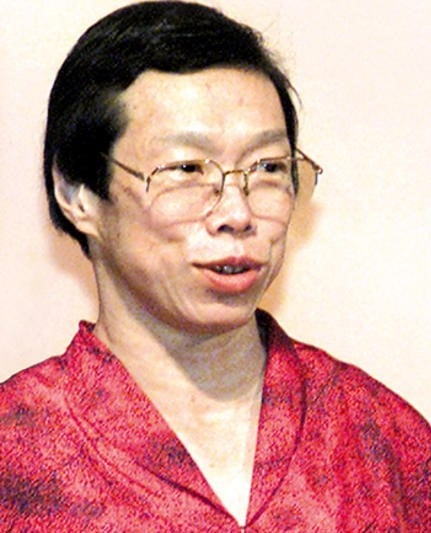
Source: Wiki.sg
Beyond her notable medical capability, she was also a staunch defender of medical ethics in the country.
In 2003, Dr Lee was involved in a medical ethics case at the National Neuroscience Institute (NNI).
She reportedly resigned from the project researching Parkinson’s disease and other conditions as she alleged that it did not collect proper consent from the patients.
The study was investigated following her allegations, and results revealed that the testing compromised patients’ well-being and safety.
The director was dismissed, and Dr Lee was appointed the new director of NNI.
4. A columnist vocal about her beliefs
Beyond her medical career, Dr Lee was also an active columnist with The Straits Times (ST) and The Sunday Times.
She published a book titled ‘A Hakka Woman’s Singapore Stories’, a collection of columns she wrote covering a variety of topics, including social issues, religions, and philosophy.
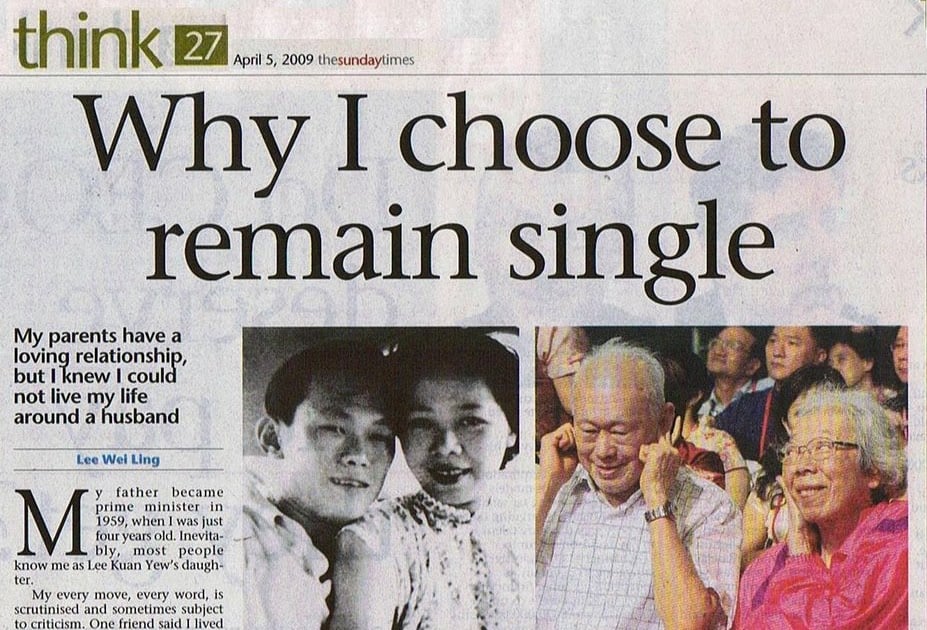
Source: Singapore Newspaper Clippings
As a writer, she was unafraid of deviating from the mainstream and expressing her views.
In 2016, a year after the passing of founding PM Lee Kuan Yew, she penned a column disagreeing with the excessive commemoration of her father’s first death anniversary.
“Lee Kuan Yew would have cringed at the hero worship just one year after his death,” wrote Dr Lee.
This column had put her at odds with ST, whose editors had removed parts of her column comparing the commemoration of founding PM Lee’s death with that of other notable political figures, including Mao Zedong and Winston Churchill.
In response, Dr Lee announced that she would “no longer write for SPH” because the editors would not “allow [her] freedom of speech”.
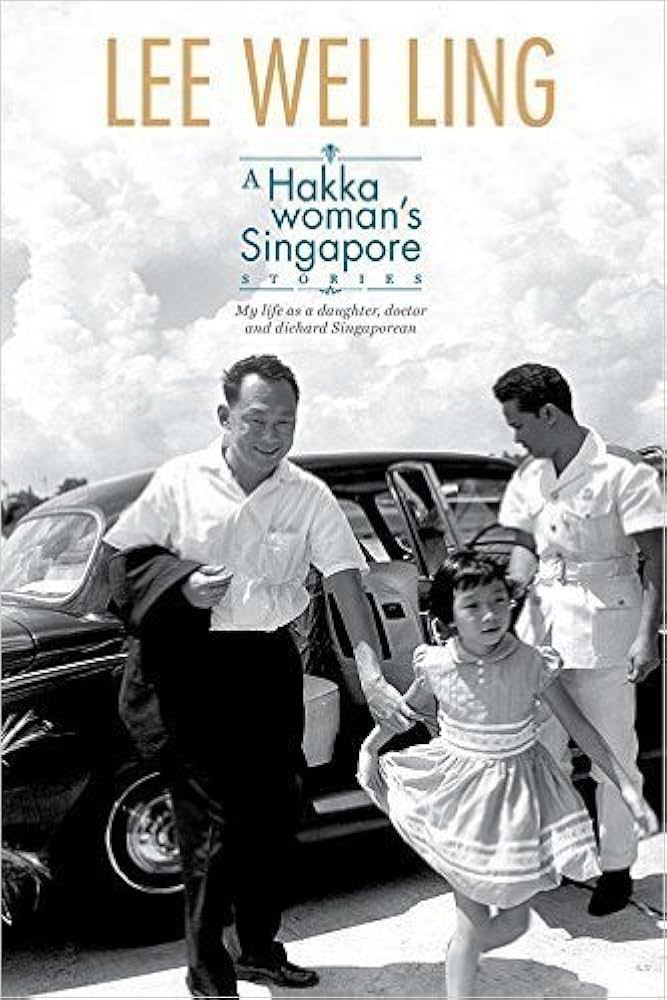
Source: Amazon
Her fiery attitude is also recognised by SM Lee.
In his eulogy for her, he wrote, “Not everyone agreed with everything she said, but her passion and conviction showed through”.
5. Diagnosed with progressive supranuclear palsy
In the last leg of her life, Dr Lee was diagnosed with progressive supranuclear palsy, a rare brain disorder.
According to SM Lee’s eulogy, she had diagnosed herself before formal diagnosis from hospitals confirmed her suspicions.
Progressive supranuclear palsy starts with symptoms similar to Parkinson’s disease, such as impaired physical and eye movements, which increases one’s tendency to fall.
Other physical symptoms include choking, difficulty breathing, and pneumonia. If the condition continues to progress, it can result in dementia.
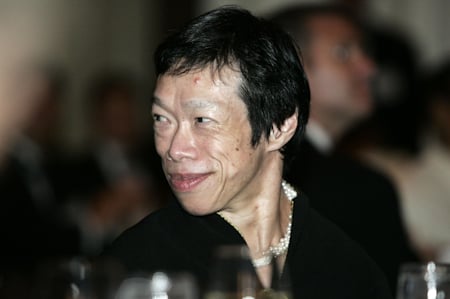
Source: Sammyboy
Nonetheless, despite the daunting prospects, Dr Lee took the diagnosis in stride when she updated her condition on Facebook.
“I have had it good for too long,” she wrote.
Recalling details from her childhood, education, and finally her career, she shared about the joy and challenges she experienced throughout her life.
“All in all, I enjoyed my years as a neurologist and epileptologist,” read the final line of her announcement.
Have news you must share? Get in touch with us via email at news@mustsharenews.com.
Featured image adapted from Facebook and Sammyboy.
